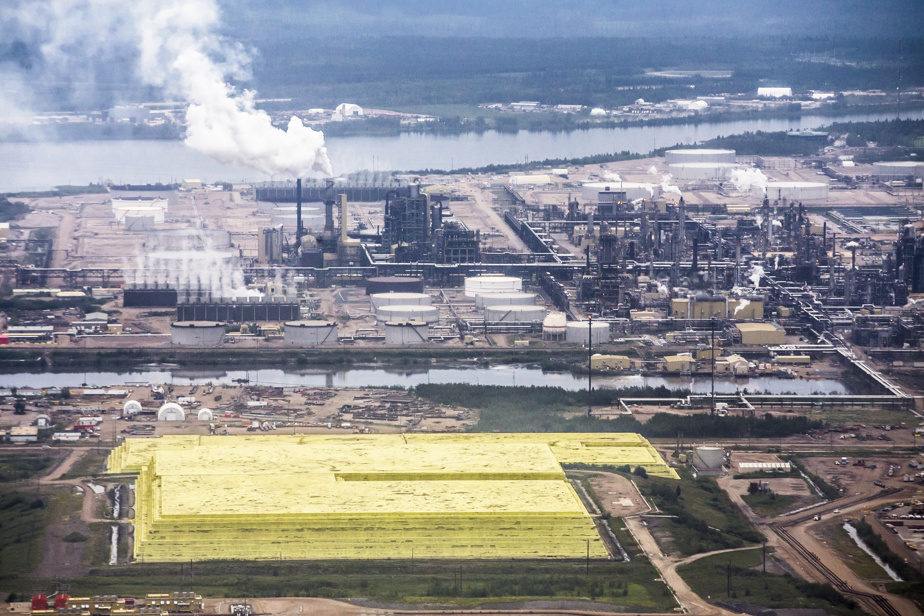The IPCC report published on August 9 is definitive: the climate crisis is no longer abstract or remote, but a process that is already underway and threatens all living societies.
Like a true horror movie, historical droughts in western Canada, horrific wildfires in British Columbia, and deadly heat waves in cities are just a few of the effects I felt close to home. You have to live in denial not to feel the urgency and hope of a drastic change of direction. However, it is necessary to stress that not all of us are equally responsible for the climate crisis.
The real culprits are the richest 1% and they are responsible for 15% of the greenhouse gases emitted between 1990 and 2015, which is twice the emissions of the world’s poorest 50% in the same period. Not to mention the 100 or so companies responsible for 71% of CO2 emissions2 Global Industries since 1988.
The actions of this small minority require us to deal with the current situation, as the new report of the Intergovernmental Panel on Climate Change tells us that it is probably impossible not to exceed the remaining carbon budget to limit global warming to 1.5 degrees Celsius, the minimum to avoid overall climate change and achieve the goals Paris Agreement. They are the ones who should stay away from feelings of guilt and urgency.
However, it is we who feel this urgency. Although young people and future generations will be witnesses and victims of the dire scenarios for which the status quo of 2050 or 2070 is synonymous, this new report takes us back to the present; To remind us of how we’ve already hit our feet in the catastrophe of global warming.
Today, many elderly people succumb to the heating of the islands each summer in the underserved areas of our cities. Indigenous communities far from urban centers are already suffering from the disappearance of important food sources such as salmon and caribou. People who live in agriculture see their yields diminished by drought because they often fall into debt. Not everyone is in the same boat: some societies are disproportionately exposed to influences, causing them real suffering, especially as their well-being and security have already been neglected by our structures and institutions.
It is no longer just a matter of reducing greenhouse gases: justice must be at the heart of all decisions taken in the face of the climate crisis. It is unfair to think about achieving carbon neutrality in a equitable way in a capitalist system in which the profits of the very few super-rich take precedence over our collective well-being. Especially since the current situation portends a future, in which the state of the world is deteriorating, only an ever smaller minority is able to make up for the devastation thanks to its control over natural resources. To find another habitable planet.
Let us remember that this small, profitable elite is above all multinational corporations and careless governments.
Let us remember that it was our governments that actively ignored the demands of the largest demonstration in Canadian history, on September 27, 2019, when the majority of the population sought to mobilize. Political promises were not fulfilled. Once again, our governments say they want to take action at COP26. However, let’s not put all our hopes in this event, and this time, let’s leave the beaten track.
Instead of getting sucked into that horror movie, could we rewrite the synopsis instead? Farewell to fossil fuels, and the incessant plunder of black gold fuels greed. Goodbye, monoculture wipes out the biodiversity that protects the climatic cycles. Gone are the economic system based on exploitation and extraction. Let us hold accountable the decision-makers who, already in 1990, had the power to lead us down another path, if they really had the will and the courage.
Instead, let us choose to return to resilient, tightly woven societies and truly re-establish indigenous sovereignty over lands.
Let’s rediscover domestic and seasonal gardening with wonder. Let us welcome with satisfaction the decrease, the more time among relatives, friends, neighbors and neighbors.
Above all, let’s reconnect with the millennial ecosystems that allow us to simply breathe, admire, and feel. Let’s slow down. Restore streets, towns and fields. together.
Let us act for the sake of this planet, but above all for the sake of our humanity. Let us move to start a new chapter in world history.
* Co-signers, CEVES activists: Thomas Brady, Clemence Roy Darris, Rosalie Thibault and François Tribanier-Haute

“Total creator. Evil zombie fan. Food evangelist. Alcohol practitioner. Web aficionado. Passionate beer advocate.”


